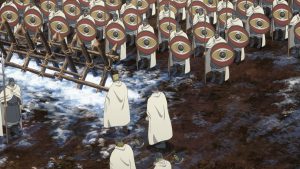 What a relentlessly fascinating, challenging series this is. The fact is that it’s full of fascinating and challenging characters, Askeladd probably the most so, and that of course drives everything else. There’s a part of me that still bemoans Thors’ early demise, because it would have been really fascinating to see a narrative play out with he and Askeladd – so very different yet more alike than they seem – as opposing poles in the story. But without Thors’ martyrdom there is no Vinland Saga – he died so that the plot could live.
What a relentlessly fascinating, challenging series this is. The fact is that it’s full of fascinating and challenging characters, Askeladd probably the most so, and that of course drives everything else. There’s a part of me that still bemoans Thors’ early demise, because it would have been really fascinating to see a narrative play out with he and Askeladd – so very different yet more alike than they seem – as opposing poles in the story. But without Thors’ martyrdom there is no Vinland Saga – he died so that the plot could live.
 If I were to quibble with anything in this arrangement, it’s that Canute’s transformation has been a little too comprehensive too quickly. Admittedly the kid has seen a lot of terrible things recently, and I suppose the counter-argument is that he’s always had the intellect to rise to this sort of occasion. But the degree of confidence and savvy he’s showing here both seem a bit of a stretch to me – he basically grew up as a farmer’s son, yet his feel for the intricacies of court intrigue seems pretty unerring at this point.
If I were to quibble with anything in this arrangement, it’s that Canute’s transformation has been a little too comprehensive too quickly. Admittedly the kid has seen a lot of terrible things recently, and I suppose the counter-argument is that he’s always had the intellect to rise to this sort of occasion. But the degree of confidence and savvy he’s showing here both seem a bit of a stretch to me – he basically grew up as a farmer’s son, yet his feel for the intricacies of court intrigue seems pretty unerring at this point.
The irony in all-this is that Canute has had a sort of anti-awakening – he’s transformed into a stone-cold bastard with a steel spine by rejecting the way of God. This irony is not unintentional on  Yukimura’s part to be certain. Canute swaggers into Sweyn’s camp at Gainsborough like a boss, dispatching Thorkell to build bridges with the grunts while ordering Askeladd to size up King Sweyn when they meet. He also stares down Floki, whose men raise their spears against him at first. Floki can hardly believe this is the same prince, a theme which we’re going to see repeated a lot this week. Floki also crosses paths with Thorfinn for the first time in over a decade, surely having no idea who the boy is – just as Thorfinn has no idea that it was Floki that was responsible for the death of his father.
Yukimura’s part to be certain. Canute swaggers into Sweyn’s camp at Gainsborough like a boss, dispatching Thorkell to build bridges with the grunts while ordering Askeladd to size up King Sweyn when they meet. He also stares down Floki, whose men raise their spears against him at first. Floki can hardly believe this is the same prince, a theme which we’re going to see repeated a lot this week. Floki also crosses paths with Thorfinn for the first time in over a decade, surely having no idea who the boy is – just as Thorfinn has no idea that it was Floki that was responsible for the death of his father.
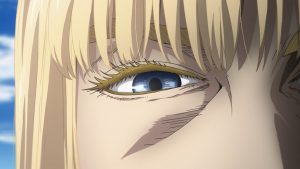 The confrontation (and no other descriptor really fits) in Sweyn’s hall is certainly tense. Again, Canute is utterly cold-blooded here – even as Askeladd and Thorfinn inform him that he’s walking into an ambush, Canute refuses to take the bait, gambling (correctly as it turns out) that his father can’t kill him yet. As the prince is the one who’s effectively delivered London (by delivering Thorkell) and its wealth into the court’s hands Canute is a heroic figure – far too heroic for the offer of “a piece or Cornwall” that Sweyn presents as an ultimatum to spare his life.
The confrontation (and no other descriptor really fits) in Sweyn’s hall is certainly tense. Again, Canute is utterly cold-blooded here – even as Askeladd and Thorfinn inform him that he’s walking into an ambush, Canute refuses to take the bait, gambling (correctly as it turns out) that his father can’t kill him yet. As the prince is the one who’s effectively delivered London (by delivering Thorkell) and its wealth into the court’s hands Canute is a heroic figure – far too heroic for the offer of “a piece or Cornwall” that Sweyn presents as an ultimatum to spare his life.
 The most fascinating moment of this encounter, though, comes when Askeladd intervenes on Canute’s behalf and Sweyn fillets him like a herring. I had no idea that Askeladd meant “covered in ashes” but it’s clearly a nickname, and Sweyn correctly deduces that never having been named by his father Askeladd is the son of a raped slave. A couple of thoughts here – one, Sweyn is, as Askeladd notes, a very smart man (even if his eyes are tired). And two, while Thorfinn is stunned to see the fierce anger Askeladd barely suppresses, my take is that having deprived so many innocents of their parents, Askeladd really has no business fronting righteous indignation.
The most fascinating moment of this encounter, though, comes when Askeladd intervenes on Canute’s behalf and Sweyn fillets him like a herring. I had no idea that Askeladd meant “covered in ashes” but it’s clearly a nickname, and Sweyn correctly deduces that never having been named by his father Askeladd is the son of a raped slave. A couple of thoughts here – one, Sweyn is, as Askeladd notes, a very smart man (even if his eyes are tired). And two, while Thorfinn is stunned to see the fierce anger Askeladd barely suppresses, my take is that having deprived so many innocents of their parents, Askeladd really has no business fronting righteous indignation.
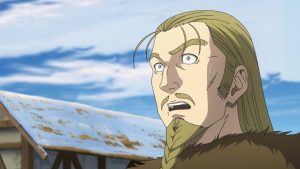 Canute having won this staredown for now, father and son back off from the gunwales and prepare to coexist while waiting for the right moment to kill each other. At the drinking party that night, Ragnar’s brother Gunnar (Mogami Tsuguo) arrives in camp, and apart from the sagittal crest you’d never guess they were related. He’s been working on an escape hatch for Canute (in Normandy) but the prince informs him he’s not interested – right after rather callously dropping the news that Ragnar is dead. Canute seems to have no doubts about Gunnar’s loyalty despite his showy demeanor, but Askeladd clearly feels differently – and if anyone should recognize a betrayer, it would be him.
Canute having won this staredown for now, father and son back off from the gunwales and prepare to coexist while waiting for the right moment to kill each other. At the drinking party that night, Ragnar’s brother Gunnar (Mogami Tsuguo) arrives in camp, and apart from the sagittal crest you’d never guess they were related. He’s been working on an escape hatch for Canute (in Normandy) but the prince informs him he’s not interested – right after rather callously dropping the news that Ragnar is dead. Canute seems to have no doubts about Gunnar’s loyalty despite his showy demeanor, but Askeladd clearly feels differently – and if anyone should recognize a betrayer, it would be him.
 Leave it to Vinland Saga to make Askeladd taking a piss the lasting memory of the episode – or at least what happens afterwards. Atli – his brother reduced to a childlike state after the terror broke him – informs Askeladd that he’s going home. In a rare moment of sentimentality Askeladd offers him a crown of gold, on the condition that Atli – who he says was never meant for the sword – find a wife, settle down and never take to the battlefield again. Askeladd also tells Atli that Bjorn is a goner, his wounds having reached his intestines. That means Thorfinn is the last of his men still with him.
Leave it to Vinland Saga to make Askeladd taking a piss the lasting memory of the episode – or at least what happens afterwards. Atli – his brother reduced to a childlike state after the terror broke him – informs Askeladd that he’s going home. In a rare moment of sentimentality Askeladd offers him a crown of gold, on the condition that Atli – who he says was never meant for the sword – find a wife, settle down and never take to the battlefield again. Askeladd also tells Atli that Bjorn is a goner, his wounds having reached his intestines. That means Thorfinn is the last of his men still with him.
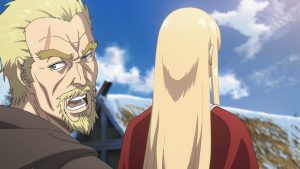 More irony – even as he’s closer than ever to achieving his goal Askeladd stands alone in the world, his only companions two boys who he effectively orphaned. Canute has expressed a willingness to become a “demon” to achieve a higher purpose, but Askeladd has already done just that many years past. He’s a tragic figure but I can’t really feel any sympathy for him, as he’s chosen this path for himself (just as Canute has). As for Thorfinn he did too, but the fact that he was six when he made the choice surely mitigates in his defence. And it’s going to be fascinating to see what choices Thorfinn – who still refuses to sweat allegiance to anyone, including Canute – makes when he’s reunited with the man who’s arrived in York just ahead of Sweyn and the royal entourage.
More irony – even as he’s closer than ever to achieving his goal Askeladd stands alone in the world, his only companions two boys who he effectively orphaned. Canute has expressed a willingness to become a “demon” to achieve a higher purpose, but Askeladd has already done just that many years past. He’s a tragic figure but I can’t really feel any sympathy for him, as he’s chosen this path for himself (just as Canute has). As for Thorfinn he did too, but the fact that he was six when he made the choice surely mitigates in his defence. And it’s going to be fascinating to see what choices Thorfinn – who still refuses to sweat allegiance to anyone, including Canute – makes when he’s reunited with the man who’s arrived in York just ahead of Sweyn and the royal entourage.


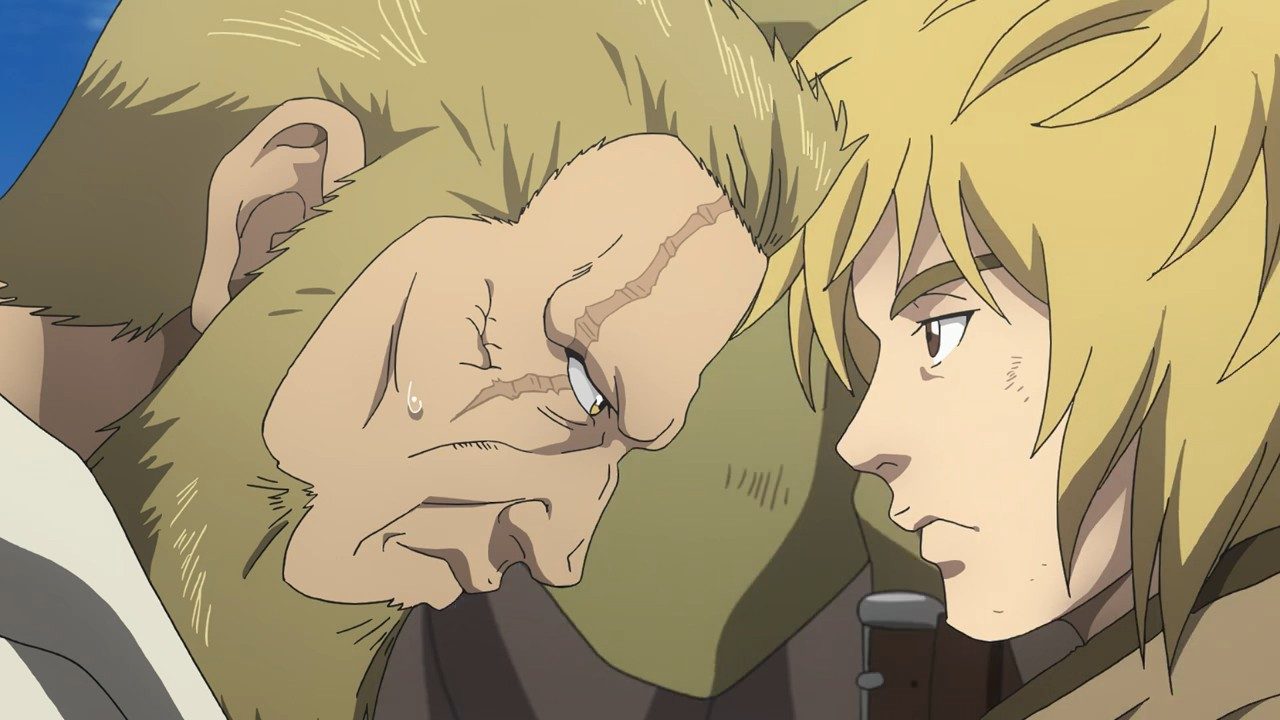
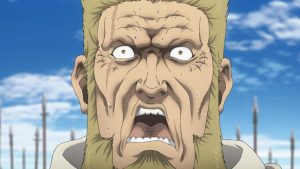

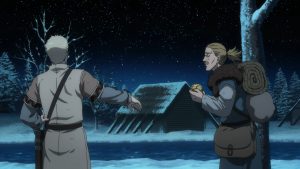
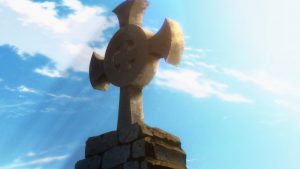
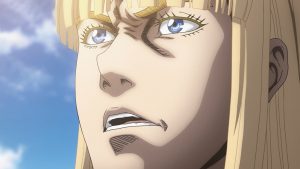
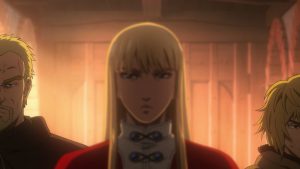
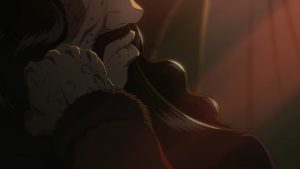
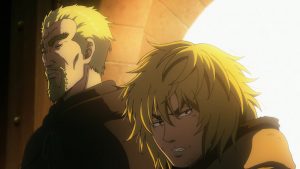
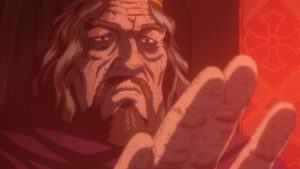
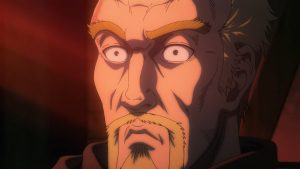

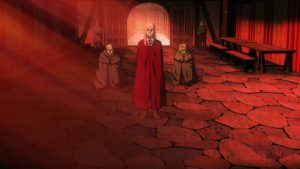
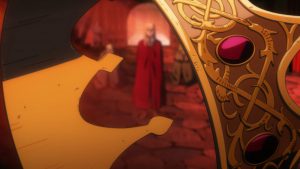

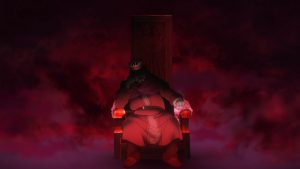


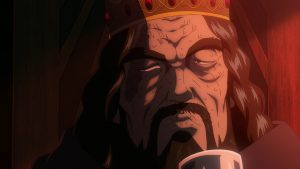
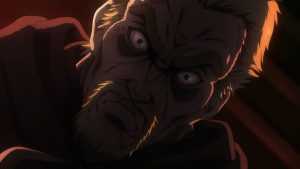
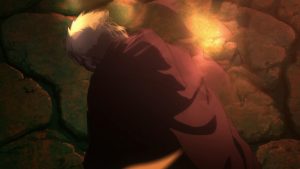
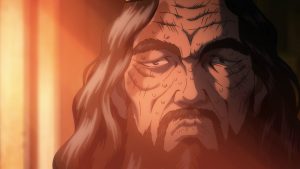
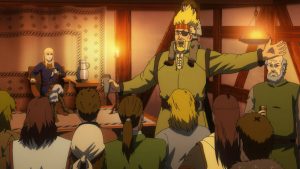
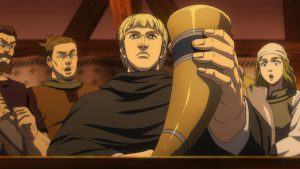


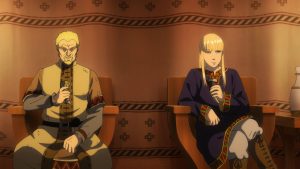

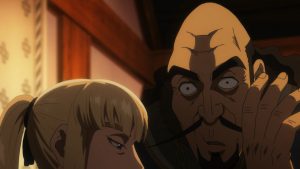
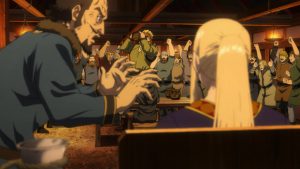


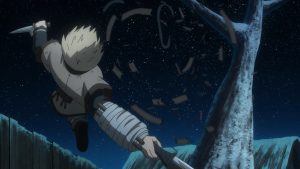

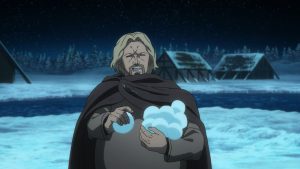
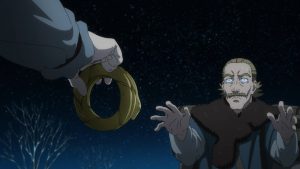
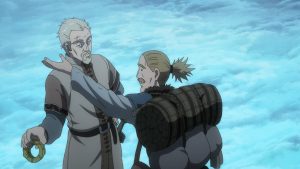
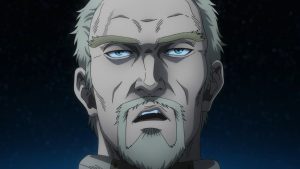

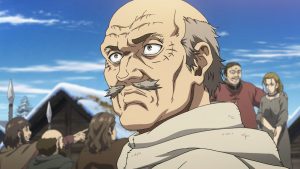
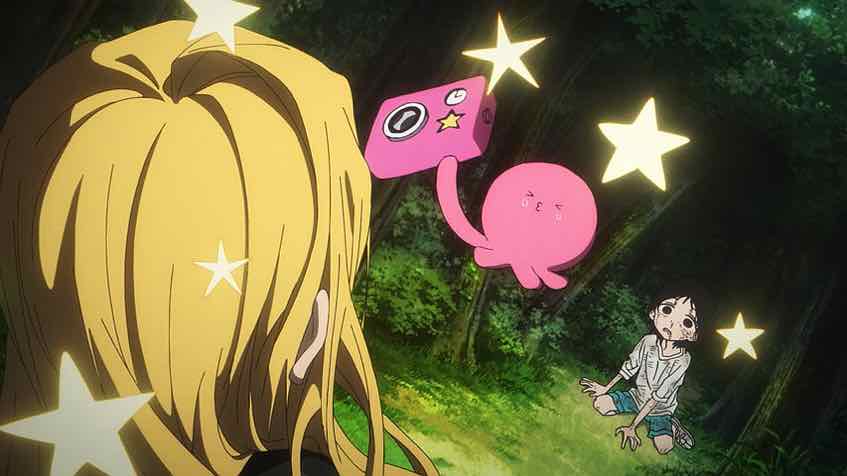
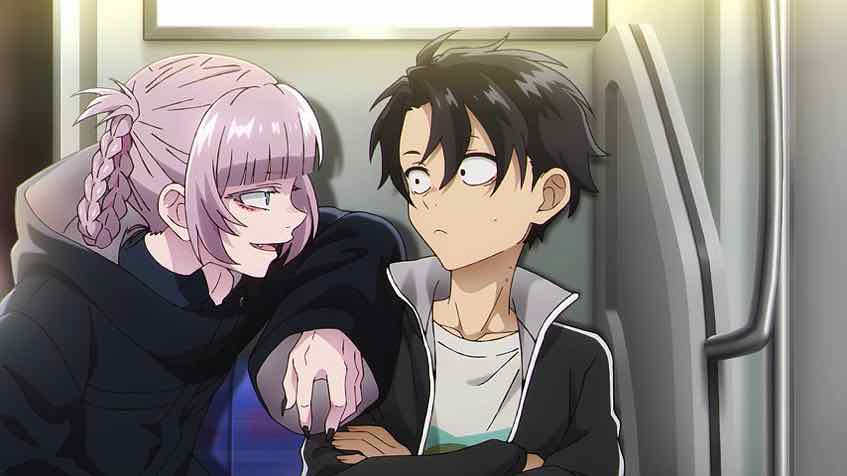
Miyu Fan
December 2, 2019 at 9:50 pmHmm based on the director’s comments he said there’s going to be some changes towards the ending due to them wrapping up the series with the uncertainty when the next season will even be made (or when), but this follows manga closely. And honestly I felt like everything is quite straightforward in the manga until the ending thematically and they can just create an epilogue that has some teasers from the next arcs. Oh well I trust the changes will be managed well anyway with how competently they handled the adaptation.
Guardian Enzo
December 2, 2019 at 10:24 pmYeah, I saw that. In Yabuta we trust…
Onix Franceschini
December 3, 2019 at 11:55 amI really hope the changes aren’t substantial… Where the anime should wrap up is pretty important for the rest of the story and I would hate for them to tamper with it too much.
Jindujun93
December 3, 2019 at 4:15 pmGoing by the episode titles (we already know those for the last four episodes), the changes just seem to be reordering of the material. In particular, episodes 21 and 22 seem to be switched compared to how things happened in the manga.
Amarantine
December 2, 2019 at 10:47 pm“Having deprived so many innocents of their parents, Askeladd really has no business fronting righteous indignation.”
Well, it’s not like Thorfinn is any different in that regard. Having spent the better part of the previous decade actively participating in raids and pillages of multiple villages, he’s surely orphaned many innocents himself already. And if we’re going to give him a pass for being warped by difficult circumstances at a young age, as we just learned in this episode, Askeladd was born to a raped slave (who was then left to die of sickness in a stable when he was still a child), so it certainly doesn’t look like he had it any easier than Thorfinn, on the contrary. :p
Guardian Enzo
December 2, 2019 at 10:50 pmThorfinn is still a child – Askeladd is a grown man.
I’m not excusing Thorfinn or dismissing Askeladd’s own cruel circumstances. I just think he’s forfeited the right to feel affronted by words at this point.
Yukie
December 2, 2019 at 11:25 pmI agree about Canute. A lot of manga readers have also found his change a little too 180. There are a few characters that that aren’t developed smoothly IMO, and he’s one of them.
As for Askeladd, I took his indignation as less for his plight and more towards his mother being called a “slave”. Askeladd holds great pride and love for his mother and her bloodline.
Heatth
December 3, 2019 at 8:36 am“I had no idea that Askeladd meant “covered in ashes””
It translate directly as “ash lad” if I am not mistaken. It comes from a Norwegian folk tale. It is an underdog story of a cunning hero who always win where others have failed, usually through cunning and trickery instead of direct confrontation. Askeladd is not a direct adaptation of the character (unlike Thorfinn and Thorkell who are meant to be the literal heroes of Nordic sagas), but he does take some characteristics of his namesake.
Guardian Enzo
December 3, 2019 at 12:52 pmThanks, good information there.